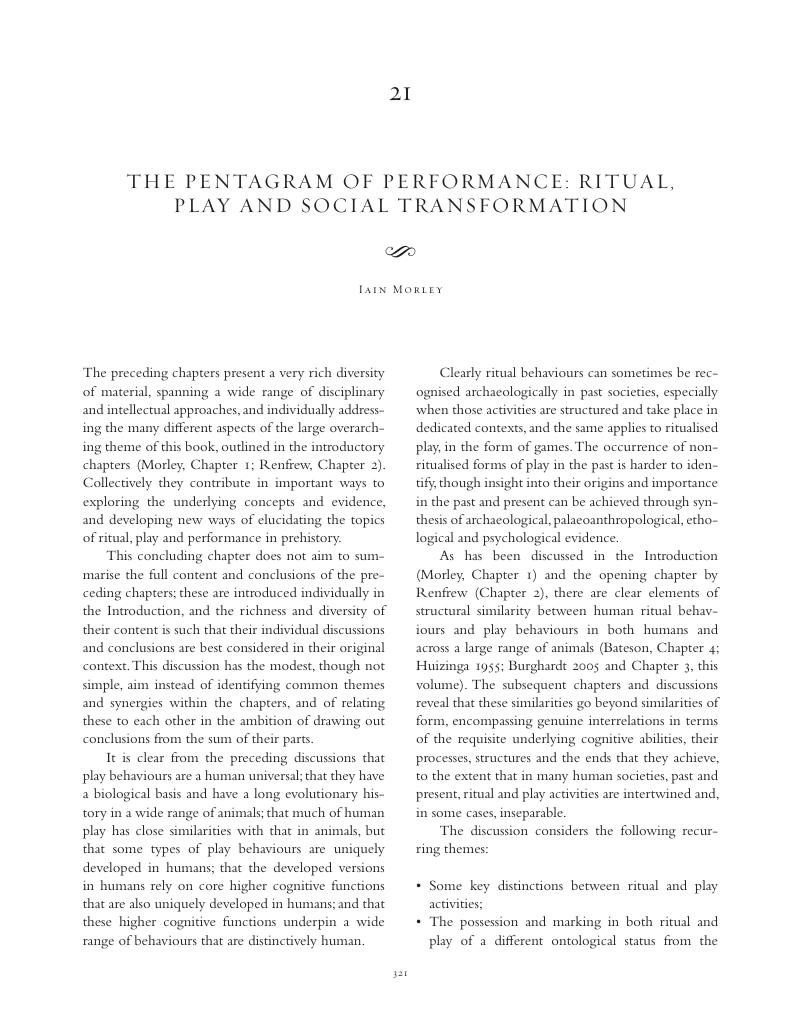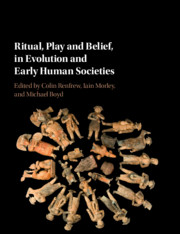Book contents
- Ritual, Play and Belief, in Evolution and Early Human Societies
- Ritual, Play and Belief, in Evolution and Early Human Societies
- Copyright page
- Dedication
- Contents
- Notes on the Contributors
- Acknowledgements
- 1 Introducing Ritual, Play and Belief, in Evolution and Early Human Societies
- 2 Introduction: Play as the Precursor of Ritual in Early Human Societies
- Part I Play and Ritual: Forms, Foundations and Evolution in Animals and Humans
- Part II Playing with Belief and Performance in Ancient Societies
- Part III The Ritual in the Game, the Game in the Ritual
- Part IV From Play to Faith? Discussion
- 19 Play and Ritual: Some Thoughts from a Material-Culture Perspective
- 20 Believing in Play and Ritual
- 21 The Pentagram of Performance: Ritual, Play and Social Transformation
- Index
- References
21 - The Pentagram of Performance: Ritual, Play and Social Transformation
from Part IV - From Play to Faith? Discussion
Published online by Cambridge University Press: 06 December 2017
- Ritual, Play and Belief, in Evolution and Early Human Societies
- Ritual, Play and Belief, in Evolution and Early Human Societies
- Copyright page
- Dedication
- Contents
- Notes on the Contributors
- Acknowledgements
- 1 Introducing Ritual, Play and Belief, in Evolution and Early Human Societies
- 2 Introduction: Play as the Precursor of Ritual in Early Human Societies
- Part I Play and Ritual: Forms, Foundations and Evolution in Animals and Humans
- Part II Playing with Belief and Performance in Ancient Societies
- Part III The Ritual in the Game, the Game in the Ritual
- Part IV From Play to Faith? Discussion
- 19 Play and Ritual: Some Thoughts from a Material-Culture Perspective
- 20 Believing in Play and Ritual
- 21 The Pentagram of Performance: Ritual, Play and Social Transformation
- Index
- References
Summary

- Type
- Chapter
- Information
- Ritual, Play and Belief, in Evolution and Early Human Societies , pp. 321 - 332Publisher: Cambridge University PressPrint publication year: 2017
References
- 3
- Cited by



